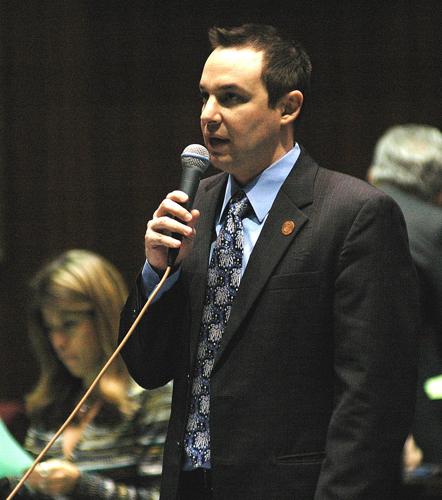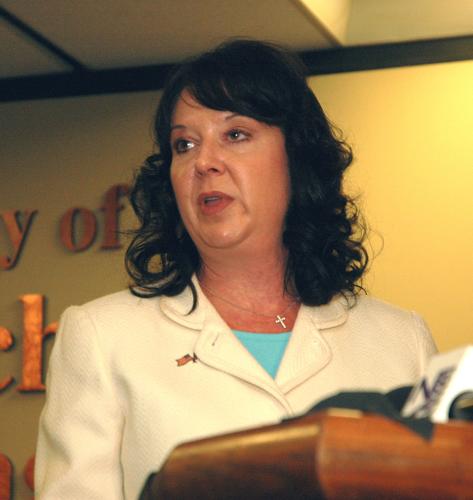PHOENIX — Claiming a pattern of practices designed to discriminate, national and local Democrat interests want a federal judge to force changes in how the state runs its elections.
Legal papers set to be filed Friday, April 15, claim that not just Maricopa County but the whole state has engaged in “consistent activity that has created a culture of voter disenfranchisement” since the U.S. Supreme Court in 2013 ruled Arizona no longer had to check with the U.S. Department of Justice before making changes in voting procedures and laws.
Those changes, challengers say, “abridged and denied the rights of voters across the state and the county.”
Some of their claims are based on the “fiasco” of the March 22 presidential primary, when Maricopa County sharply reduced the number of its polling places.
“In many cases, voters were unable to wait in the arduous lines and were wholly disenfranchised,” claim the attorneys for the Democratic National Committee, the Arizona Democratic Party and others, including Ann Kirkpatrick’s U.S. senate campaign committee.
They said the burden hit particularly hard Hispanic and African-American communities, some of which had no voting locations at all.
This lawsuit does not seek to invalidate that election. A separate legal claim is pending on that, with a hearing set for next week.
Instead, it asks a federal judge to rule that various state and county election officials violated both federal laws and the U.S. Constitution.
In the end, challengers want the court to force some changes. One deals with where people vote — and whether the vote is counted.
In most elections, people have to vote at their assigned polling places. If they’re not on the rolls, they can cast a “provisional ballot,” which is counted only if it turns out that person is, in fact, registered to vote. But if the ballot was not cast at the assigned polling place, the results are not counted.
The argument is that while the person may be in the wrong precinct to vote for, say, a member of the Legislature, that person’s vote should count for any race in which the person was actually eligible and which was up for grabs where the person did vote, ranging from president to a member of Congress.
More directly, Democrats are targeting HB 2023, signed last month by Gov. Doug Ducey, which makes it a felony to collect voted or unvoted early ballots from any other person. Violators can be sentenced to a year in prison.
Secretary of State Michele Reagan, a Republican, pushed for the change, saying allowing one person to collect multiple ballots created an opportunity for fraud.
The challengers say the measure was aimed largely at minority voters who “have relied heavily on community members, organizers and friends to deliver ballots.” Now, with the threat of a felony, these same groups “are significantly more likely to have their right to vote abridged or denied in the coming general election.”
Reagan actually said something that would appear to back that contention: In a speech last month at the annual Conservative Political Action Conference about the legislation, she said it is “the radical Left who uses ballot harvesting.”
Reagan press aide Matt Roberts said there was nothing partisan about this legislation, nor any other changes that have been made to state election laws by the Republican-controlled Legislature. He said they have made it “easy to vote and hard to cheat.”
No one, including Reagan, has offered proof that those who collect ballots are selectively deciding which ones to turn in and which to discard. And tampering with or throwing out a ballot already is a crime.
Rep. J.D. Mesnard, R-Chandler, said that was irrelevant.
“What is indisputable is that many people believe it’s happening,” he said. “And I think that matters.”
Tim Sifert, spokesman for the Arizona Republican Party, said the entire complaint is partisan.
He pointed out that Republicans outnumber Democrats among registered voters. And GOP turnout generally is higher.
“And now they just seem to be making excuses long before the election even happens,” he said. “It’s like they’re preparing to lose.”
The challengers say the reason the state has been able to make such changes is a 2013 ruling by the U.S. Supreme Court that overturned a section of the federal Voting Rights Act.
That law created a formula to identify which states and counties have a history of discrimination and therefore had to submit any changes in voting laws and procedures, including polling place locations, to the Department of Justice for “preclearance.”
The states affected included Arizona.
Chief Justice John Roberts, writing for the 5-4 majority, said that formula no longer made sense and voided the preclearance requirement.
But he was careful to say that other sections of the federal law and its amendments survived. And he said the ruling was not a license for states to enact new, discriminatory voting laws.
Amy Dacey, chief executive of the Democratic National Committee, argued that the practices the party objects to never would have been allowed to take effect in the first place had preclearance been in effect.
In a prepared statement, Dacey said Arizona was subject to the requirement because of the state’s “long history of explicit discrimination and disenfranchisement.” She said all that changed with the 2013 Supreme Court ruling.
“Arizona has been able to write new voting laws unchecked,” she said in a prepared statement. And she said people who banned bilingual education in Arizona and “protected Sheriff Joe Arpaio’s illegal stops of Hispanics” have created “an environment where Hispanic, African-American and Native American voters face enormous burdens in exercising their most basic rights as citizens.”
The lawsuit also is attracting the attention of the top Democrat presidential contenders, both of whom promised to join the lawsuit as plaintiffs.
An aide to Bernie Sanders, who lost the March 22 primary, said there is a “pattern of voter disenfranchisement by Republicans.”
Robby Mook, who works for the Hillary Clinton campaign, said she shares the concerns of supporters of both campaigns “who encountered barriers” in the election.







